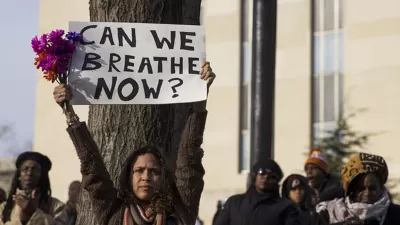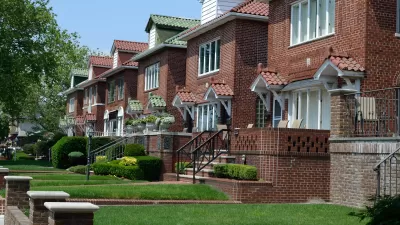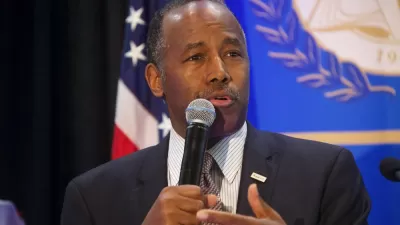The Black Lives Matter movement has seen legislative successes in advocating policies at the city level, but the Trump Administration will pose new challenges.

The Black Lives Matter (BLM) movement has been advocating for policy changes for years. According to Johnny Magdaleno, "they proposed policies that took a page out of progressive theories on urban development that would reverberate across the spectrum of race and class at the city level." Their goals include, "Shifting more federal funds out of police departments and into employment programs. Favoring community-based sustainable energy projects that employ neighbors," Magdaleno details. The movement, which is national has had success in targeting local politics, "influencing policymakers in the cities where M4BL’s main players operate: New York, Chicago, Philadelphia, Cleveland, Washington, D.C., Sacramento, Portland, Ferguson and a handful of others."
The election of Donald Trump and the federal government's adoption of his policy goals has presented a new suite of challenges. One example Magdaleno points out is "[Trump's] appointment to run the U.S. Department of Housing and Urban Development (HUD), Ben Carson, has expressed inconsistent opinions about federal assistance programs for low-income and underserved communities." While Ben Carson's appointment is only one of the many challenges the election of President Trump presents to the movement many hope that the divisive leader can motivate action from progressive citizens around the country.
FULL STORY: Movement for Black Lives Pushes for Victories City by City

Maui's Vacation Rental Debate Turns Ugly
Verbal attacks, misinformation campaigns and fistfights plague a high-stakes debate to convert thousands of vacation rentals into long-term housing.

Planetizen Federal Action Tracker
A weekly monitor of how Trump’s orders and actions are impacting planners and planning in America.

San Francisco Suspends Traffic Calming Amidst Record Deaths
Citing “a challenging fiscal landscape,” the city will cease the program on the heels of 42 traffic deaths, including 24 pedestrians.

Defunct Pittsburgh Power Plant to Become Residential Tower
A decommissioned steam heat plant will be redeveloped into almost 100 affordable housing units.

Trump Prompts Restructuring of Transportation Research Board in “Unprecedented Overreach”
The TRB has eliminated more than half of its committees including those focused on climate, equity, and cities.

Amtrak Rolls Out New Orleans to Alabama “Mardi Gras” Train
The new service will operate morning and evening departures between Mobile and New Orleans.
Urban Design for Planners 1: Software Tools
This six-course series explores essential urban design concepts using open source software and equips planners with the tools they need to participate fully in the urban design process.
Planning for Universal Design
Learn the tools for implementing Universal Design in planning regulations.
Heyer Gruel & Associates PA
JM Goldson LLC
Custer County Colorado
City of Camden Redevelopment Agency
City of Astoria
Transportation Research & Education Center (TREC) at Portland State University
Jefferson Parish Government
Camden Redevelopment Agency
City of Claremont





























